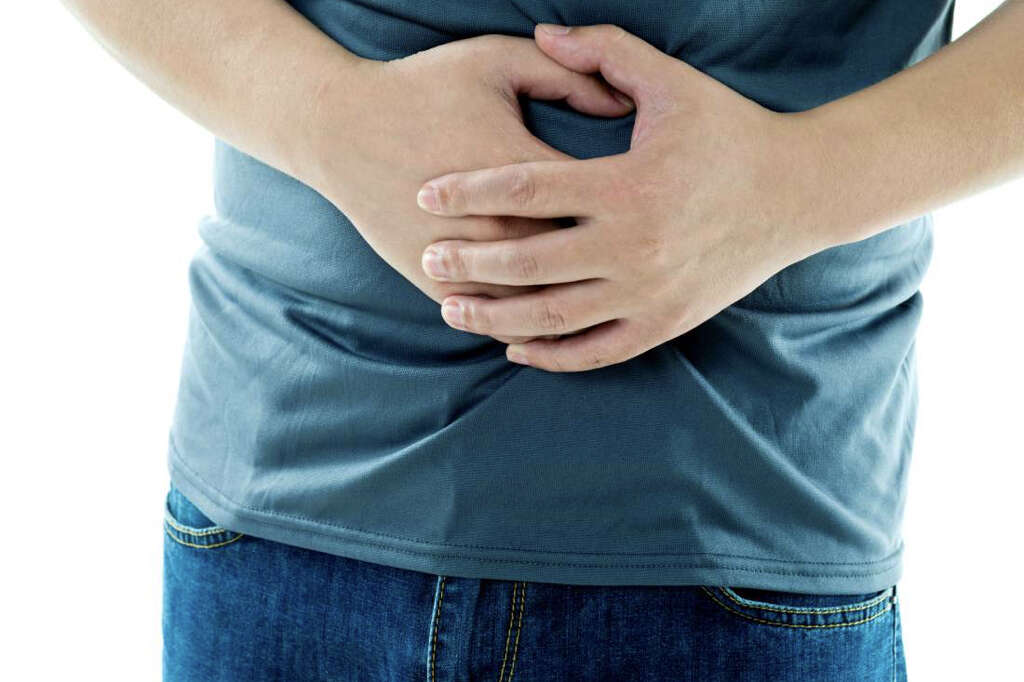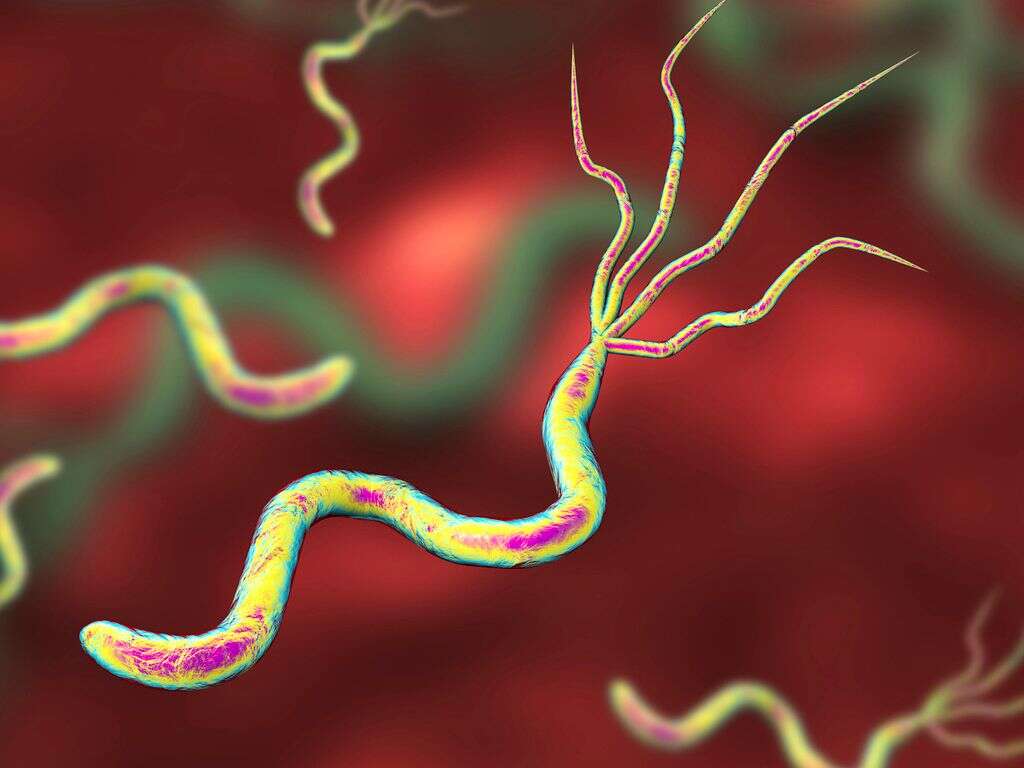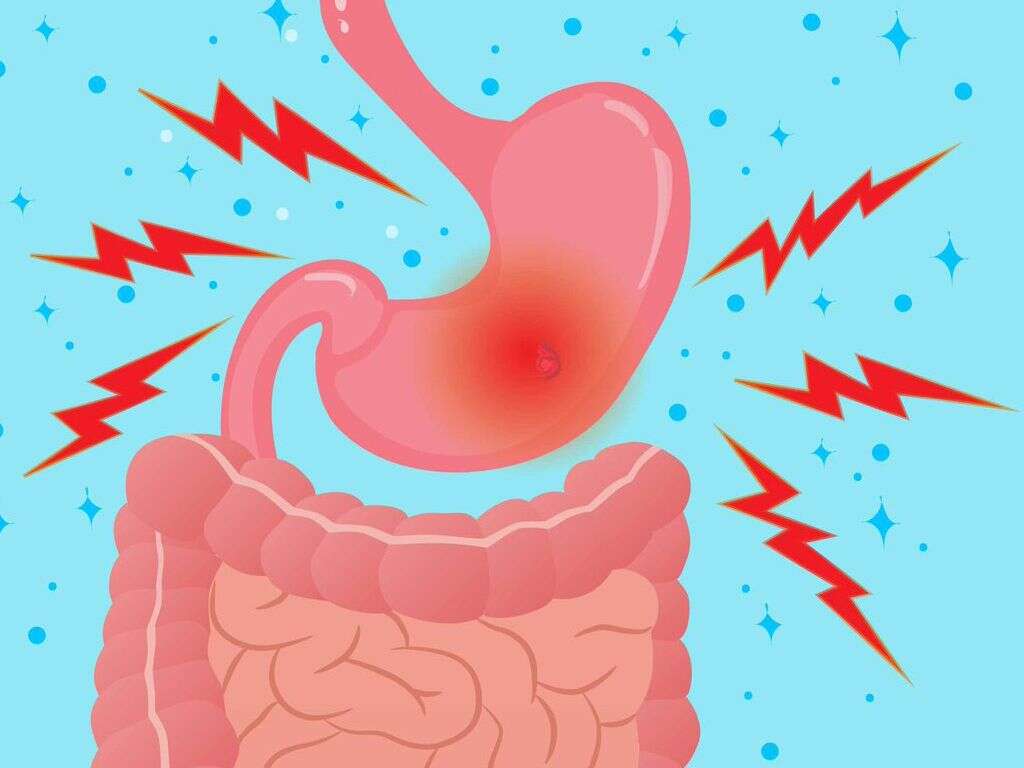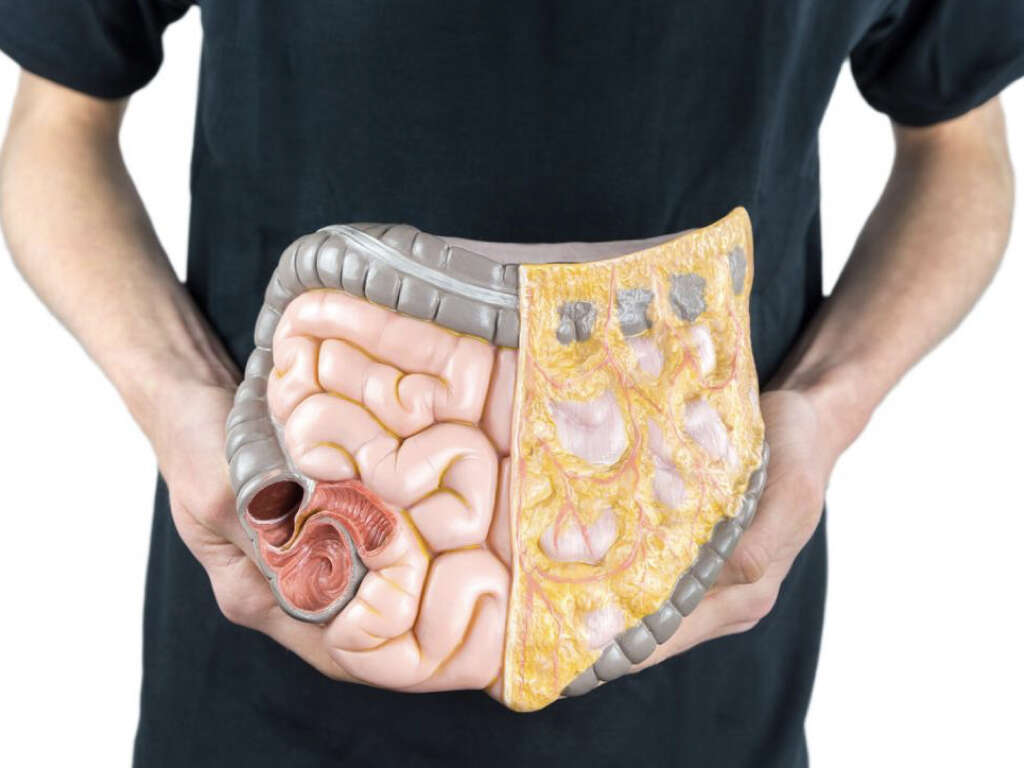10 Duodenal Ulcer Symptoms
Duodenal ulcers are a relatively common form of illness that can lead to pain in the abdomen and a number of other unpleasant symptoms. Once a patient or doctor recognizes a duodenal ulcer and begins treatment, they generally heal within a couple of weeks. Duodenal ulcers, like other forms of ulcers, are a type of sore that can form on the inner lining of the digestive system—in this case, in the duodenum. The duodenum is the first part of the small intestine, the area through which food first goes after it exits the stomach. It’s possible to get ulcers in both the stomach and the duodenum, and for this reason it’s easy to confuse the symptoms of the two and it can be difficult to actually diagnose a duodenal ulcer as opposed to a stomach ulcer. Regardless of the type of ulcer, however, both fit into the category of a peptic ulcer and thus you can be diagnosed with peptic ulcer disease.
There are a number of ways that you can contract a duodenal ulcer, but almost all of them have something to do with the way that your stomach produces mucus. Your stomach uses mucus to protect its sensitive lining from the harsh digestive juices that are used to help digest food. This acid, which is useful for helping to break down food and kill bacteria, can be quite dangerous to the lining of your stomach. There are lots of things that can contribute to problems relating to mucus in the digestive tract. The first and most common problem is a bacterium known as H. Pylori. This bacterium can cause inflammation in the lining of your duodenum, making it more susceptible to developing ulcers. Over-the-counter NSAIDs—anti-inflammatory medications used for alleviating mild-to-moderate pains and aches—are also known to contribute to the development of ulcers and should be used in moderation. Unhealthy habits like smoking and drinking are also known to contribute to the development of ulcers.
If you think that you may be suffering from a duodenal ulcer, it can be useful to determine whether or not you need to seek medical treatment by looking at some of the symptoms. In this article, we’ll outline the most common symptoms of a duodenal ulcer.
Symptom #1: Abdominal Pain
Patients suffering from a peptic ulcer usually complain about abdominal pain as one of the most common symptoms. The pain is usually felt in the upper part of the abdomen, also called the epigastric region. Pain degrees may vary depending on the type of ulcer and location. Usually, patients with a duodenal ulcer experience pain several hours after a meal, whereas, patients with a gastric ulcer may experience epigastric pain shortly after a meal.
Sharp abdominal pain that appears abruptly should be evaluated by a medical professional as soon as possible as it can be a sign of a peptic ulcer perforation which is a medical emergency.
Symptom #2: Heartburn
Heartburn is described as a burning sensation in the upper part of the abdomen. It is a very unpleasant feeling and it can be painful as well. The burning sensation is usually localized to the epigastric region of the abdomen. This symptom can appear anytime in the day but it is usually worse in the early morning after waking up.
For patients with a duodenal ulcer, this symptom can usually be alleviated with the use of antacids or by ingesting food, whereas patients with a gastric ulcer usually feel minimum relief.

Symptom #3: Indigestion
Indigestion is a term that can refer to a number of gastrointestinal issues, some of which we have discussed already.
Indigestion can be a combination of cramping and aches or pains, but it can also lead to difficulty digesting food and other problems like flatulence.
Symptom #4: Feeling Bloated
Feeling bloated is another issue that can arise if you’re experiencing a duodenal ulcer. The sensation of feeling bloated is generally an uncomfortable one, marked by the sensation of having your abdomen swelling up.
In some cases, bloating can be reduced or relieved entirely by passing gas. However, in some cases, this will not relieve the issue whatsoever. If you are constantly feeling bloated or feel that there’s something bubbling in your bowels, this could be a sign that you need medical treatment.

Symptom #5: Feeling Nauseous
Most of us are familiar with the sensation of being nauseous. This is the queasy feeling that often accompanies a sickness such as flu. However, there are many other things that can contribute to nausea, and one of the most common causes is an ulcer.
Ulcers can cause nausea at any time of the day, but the nausea is generally more pronounced after you’ve eaten something and early in the morning, when there is more stomach acid present in the body.
Symptom #6: Bloody Stools
If you are able to diagnose your ulcer and begin treating it during its early stages, then you probably won’t have to worry about experiencing bloody stools. If you have an ulcer and you’re seeing blood in your excrement, this is a sign that the ulcer has become so serious that it’s actually bleeding into your digestive tract.
If you experience blood in your feces, you should seek medical attention, especially if the problem continues for more than one or two bowel movements.

Symptom #7: Vomiting
Another issue that can occur if you’re struggling with an ulcer is vomiting. Many of us have experienced the combination of vomiting and nausea when we’ve had stomach flu. Ulcers can cause similar complications.
It’s generally more common to experience vomiting if you’re struggling with a stomach ulcer but it’s very possible that a duodenal ulcer can induce vomiting as well.
Symptom #8: Fatigue
Fatigue is described as a general feeling of tiredness and low energy. It usually resolves with a proper amount of rest, but sometimes it can be a sign of an underlying condition.
If left untreated, peptic ulcers may bleed. Depending on the type of ulcer and the duration of the condition, this bleeding can cause anemia. If anemia appears, the patient may experience fatigue as one of the early symptoms.

Symptom #9: Nightly Pain
More than half of the patients with a duodenal ulcer may experience a dull pain at night that is intense enough to wake them up. This symptom can also happen in patients with gastric ulcers but is not quite as frequent.
If you are suffering from this symptom, you should seek medical attention for a proper diagnosis and prevent further complications.
Symptom #10: Belching
Belching is a common symptom associated with peptic ulcer disease. It may appear shortly after meals and they can also smell foully. This symptom is quite annoying for patients and may cause them to become bloated.
If you are experiencing this symptom regularly, you should seek a medical professional for proper diagnosis.











